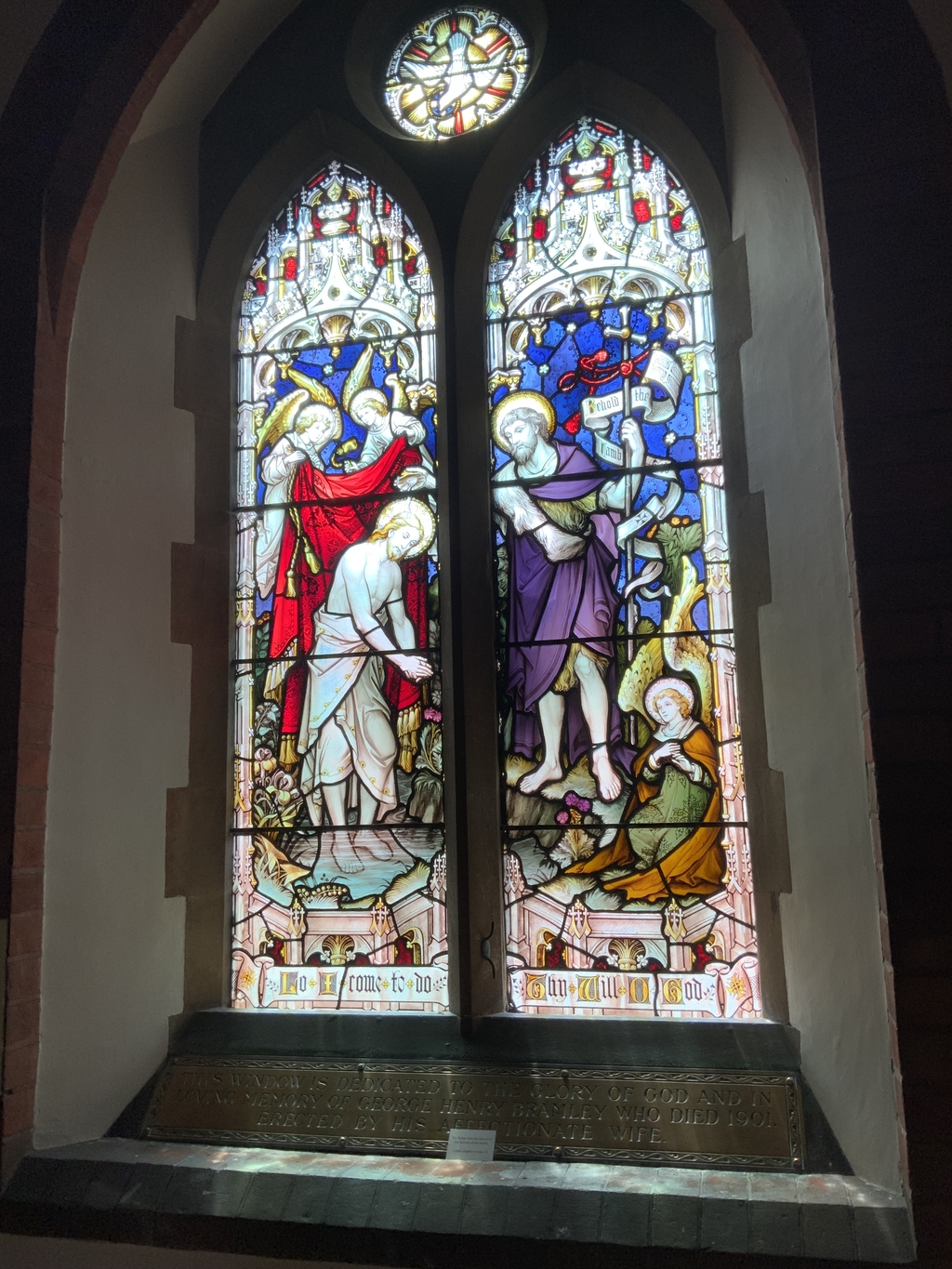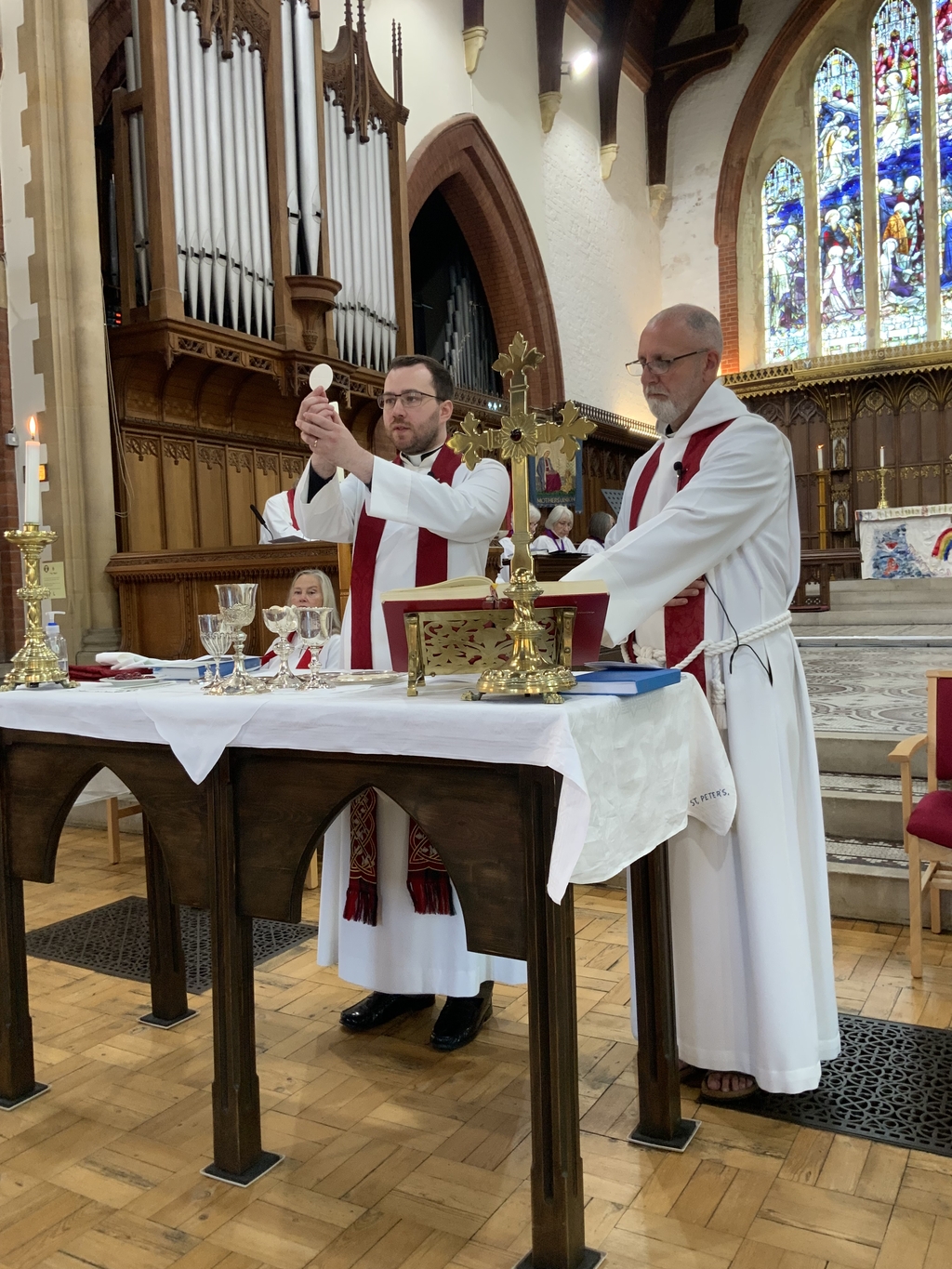Last week was Trinity Sunday, which follows the long Easter season in the Anglican Church’s calendar. Towards the end of Eastertide, we also celebrated Ascension Day and then Pentecost, which marks the coming of the Holy Spirit in a new way and the gathering together of believers, seen as the birth of the Christian Church.
During the Easter season we followed the events of Jesus’ life, culminating in Passion week, when we held special services to remember what Jesus went through, from a foot washing ceremony on Maundy Thursday, commemorating the Last Supper, to the walk of witness on Good Friday, when many people from Sheringham and beyond walked up Beeston Bump in a solemn procession behind those carrying the large wooden cross. On the night before Easter, we held a service proclaiming that the next day was the day of resurrection, the reemergence of the Light of the world, when Jesus rose from the grave as the eternal Christ. All these services correlated to specific incidents in Jesus’ life on earth.
Trinity Sunday is different. It does not correlate to any particular event or occasion in Jesus’ life or in the life of the early church. What is more, nowhere in the Bible will you find mention of the ‘trinity’. It is an understanding of God that some of the early Christians came to have when trying to grasp the full dynamic of God’s nature. And so, we now find ourselves in the season of Trinity, a season which lasts for over 20 weeks!
The readings for this Sunday focus on the theme of how we can honour God in our relationships with others as well as with God. Issues around keeping the sabbath illustrate this theme. ‘Sabbath’ is a Hebrew word that means ‘to desist’. It was used in Genesis to describe how God at one point ‘desisted’ from the work of creation. It suggests a pause, a rest. For us, it also carries the meaning of having a rest while keeping God in mind. It’s a break with a purpose. Yes, we are to celebrate the sabbath, enjoying food, family and friends, but it’s also about remembering with gratitude all that God has done for us.
We are not, however, meant to become legalistic about it! In the Gospel of Mark, Jesus was making a point about which is more important: the health and welfare of God’s beloved people or the strict keeping of the sabbath? By his action of healing a man witha withered hand on the sabbath, Jesus was showing what God values, while exposing the mean-spirited hypocrisy of the Pharisees.
Paul, in his second letter to the Corinthians, was at pains to convince some of his readers that he was speaking the truth about the risen Christ. He wanted them to understand that all power belongs to God but that, because of the life, death and resurrection of Jesus Christ, God can manifest this spiritual power even in our physical weakness. Paul wrote that he and all other believers have this ‘treasure in clay jars’: even though we are fragile and made of the stuff of the earth, we still hold untold spiritual power. Our understanding of who God is, and of how we can relate to God, will shape our response to God’s offer of this infinitely precious ‘treasure.’
Christina Rees











